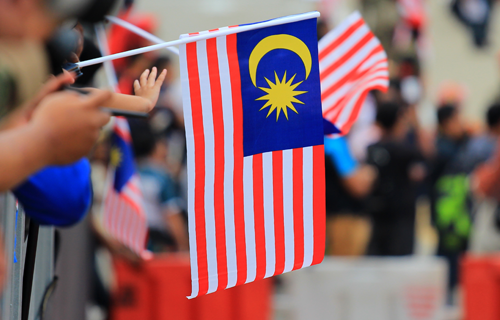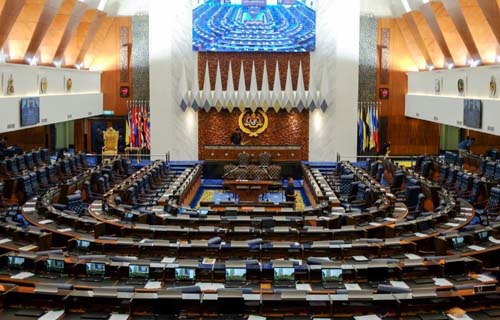The Bus Driver and Us: A Short Story of Racism

Written by Melissa Chin Ning, a member of Akar Umbi Kita, a programme for emerging advocates against racial discrimination by Architects of Diversity, Imagined Malaysia, IDEAS and the European Union. This article is published in conjunction with the International Day for the Elimination of Racial Discrimination.
My mother and I boarded the Smart Selangor bus, thinking that it would be an uneventful ride to the MRT station, but that wasn’t the case. Once seated, the bus driver, a non-Malay man, started making fun of us for being Filipino. Spoiler alert: we are not. Even if we were, why does that even matter? As we shuffled on in silence, he proceeded to ridicule our level of Malay proficiency, mistaking our silence for non-comprehension.
My mother heard me curse silently and motioned me to keep out of the way. But words cut deep, and to this day, I sometimes regret not speaking up against him.
What have we been doing so far?
Many of us can agree that the bus driver was being disrespectful. However, is his action considered a hate speech crime? Are there any legal protections available in Malaysia against such acts?
There is currently the United Nations convention, the International Covenant on Civil and Political Rights (ICCPR). ICCPR prohibits any form of hate speech that constitutes incitement to discrimination, hostility or violence (article 20, section 2), but still recognises the rights to freedom of expression (article 19). Malaysia is neither a party nor a signatory of the ICCPR, although we have several laws that address different aspects of hate speech such as Section 298A and Section 505(c) of the Penal Code.
Section 298A deems anybody causing disharmony on the grounds of religion a jailable offence for 2 to 5 years. It also doesn’t matter if the perpetrator professes the same or different faith as the subject insulted. Meanwhile, Section 505(c) punishes those who intend to incite others to commit any offence against another group of persons by publishing or circulating statements or rumours. If convicted, the perpetrator will be jailed for up to 2 years, slapped with a fine according to the court’s discretion, or both.
Suppose the perpetrator uses social media or any communications medium to facilitate the actions mentioned above, we can also throw Section 233 of the Communications and Multimedia Act 1998 into the mix. The punishment may include imprisonment for less than a year, a fine of not up to RM50,000, or both. Despite allowing for punishment, these laws do not clearly define the actions that can get someone punished under a particular section. This is unlike Section 300 for murder in the Penal Code which is included with illustrations or situational examples to help us understand how somebody can be convicted. When the sections are too broad and vague, the laws would be liable to abuse.
By ratifying the ICCPR, we would be able to file a complaint to the Human Rights Committee (HRC) under the Optional Protocol in the event of a violation. The complaint would then be directed to the Malaysian government for consideration. As a signatory of the convention, this is what we can do to ensure that our government is being held accountable.
The question is where do we draw the line between freedom of expression and hate speech? At both national and international levels, there are no legal frameworks to categorise the various levels of hate speech, making it challenging to address the issue.
To identify the solution to a problem, we should begin by defining and analysing them. Categorising the types of hate speech is one way we can start. Although it isn’t easy to compartmentalise something abstract such as speech, it would be helpful in the long run as everyone would gain an understanding of what form of speech is deemed offensive and vice versa.
Where are we now?
In November 2021, Foreign Minister Saifuddin Abdullah stated that the government has not made a decision to ratify the ICCPR. According to him, a detailed assessment must be conducted before coming to a final decision.
There is no set timeline announced although Saifuddin has listed the workflow involved. This includes discussions with stakeholders to prepare a proposal paper and engaging with the public to raise awareness. At the moment, the ministry is collaborating with the Office of the High Commissioner for Human Rights (OHCHR) to translate the nine human rights treaties into Bahasa Malaysia, which include ICCPR. This is a commendable effort to help the public understand the consequences of the ratification.
However, a clear timeline must still be set and made transparent to better prepare Malaysians for the ratification and for everyone to hold the government accountable. Or else, it would be a repeat of endless U-turns just like with ICERD and the Rome Statute.
Why should we tackle hate speech?
Tackling hate speech is a step forward to address larger-scale crimes, which includes terrorism and atrocities such as genocide, crimes against humanity, and war crimes. History has proven that hate speech is the spark that started the great fires of mass violence as evidenced in the Rwandan Genocide and the Holocaust. Exposure to hate speech increases prejudice towards the victims, and when amplified via the media, a social process leading to collective violence happens.
A recent example is the Capitol Hill Riot which prompted Twitter to suspend Donald Trump’s Twitter account three days after it took place. Social media platforms were utilised to spread messages of incitement to other pro-Trump supporters. Five deaths occurred during the riot, and it all started with Trump’s fear-mongering speech during the Save America rally on 6 January 2021. This incident is more than enough to demonstrate that words can be a powerful tool to mobilise collective action, for better or for worse.
Now that we are a part of the UN Human Rights Council 2022 – 2024 term, it is more crucial than ever to prove to the world that we are committed to protecting human rights. By signing the ICCPR, Malaysia will show that we are not just paying lip service and that we are taking active steps to improve the human rights conditions in our backyard.


